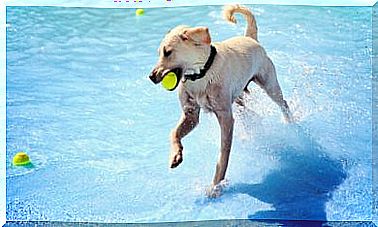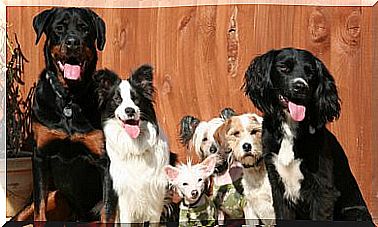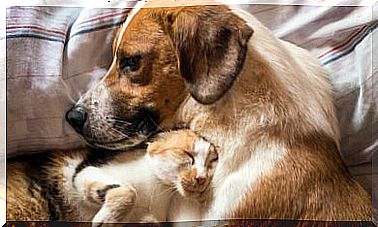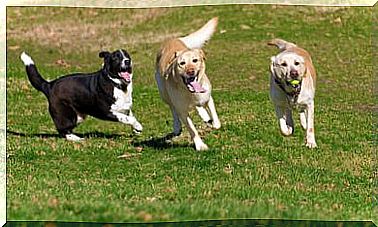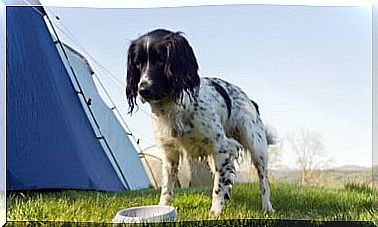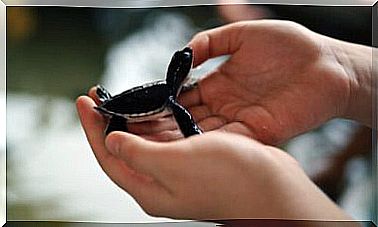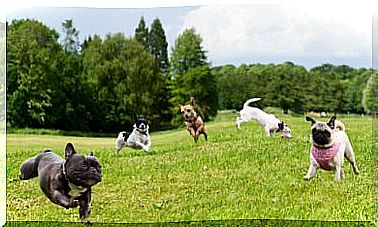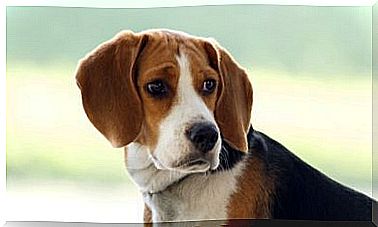What Are Dogs Afraid Of?
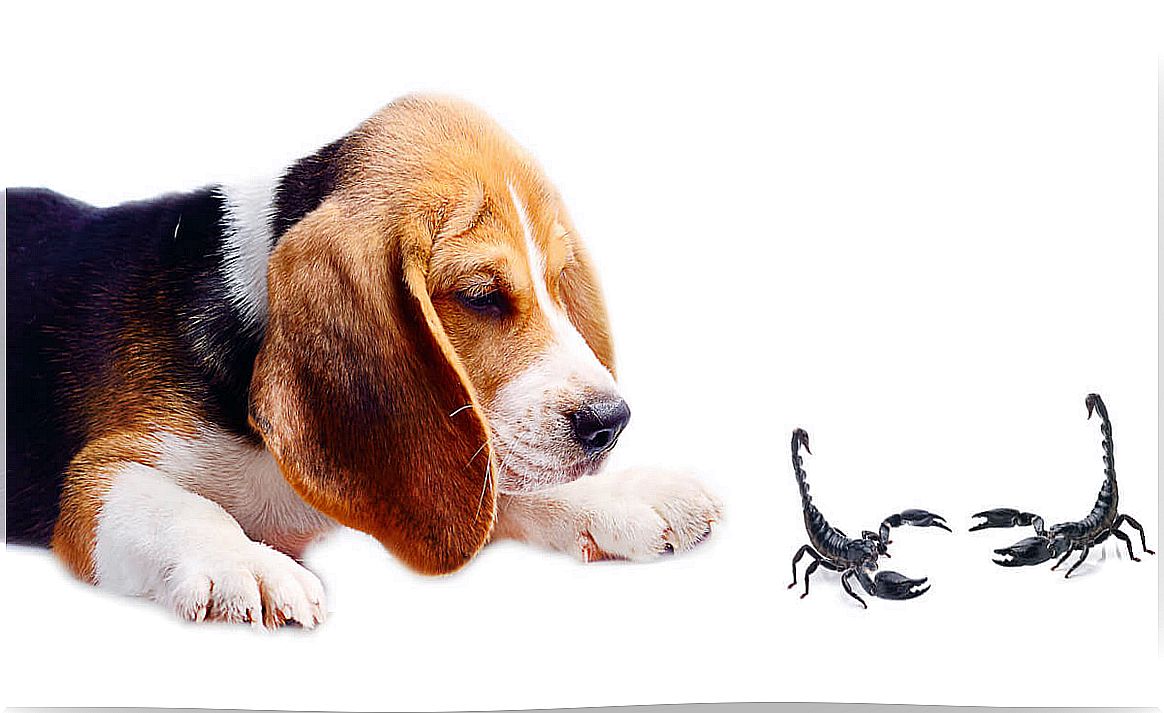
If you are considering sharing your life with a dog and you want his arrival home to be as smooth as possible, you are probably wondering what dogs are afraid of. Some may develop phobias if this matter is not handled properly.
In the following lines, you will find the elements that usually cause fear in dogs, as well as a series of tips to manage these nervous breakdowns. Do not miss it.
What are dogs afraid of?
1. Stairs
2. Loud noises
The difference between dogs and humans when it comes to reacting to loud noises is that the latter know what is playing. Imagine that you did not know what thunder is: wouldn’t you be afraid of a sound that comes from the sky, sudden and very loud?
Sudden loud noises like fireworks, storms, cars, or screams startle them. Unfortunately, this adds to a feeling of helplessness, as dogs do not know the origin of the sound. Later, we will tell you how to help your dog with this problem.
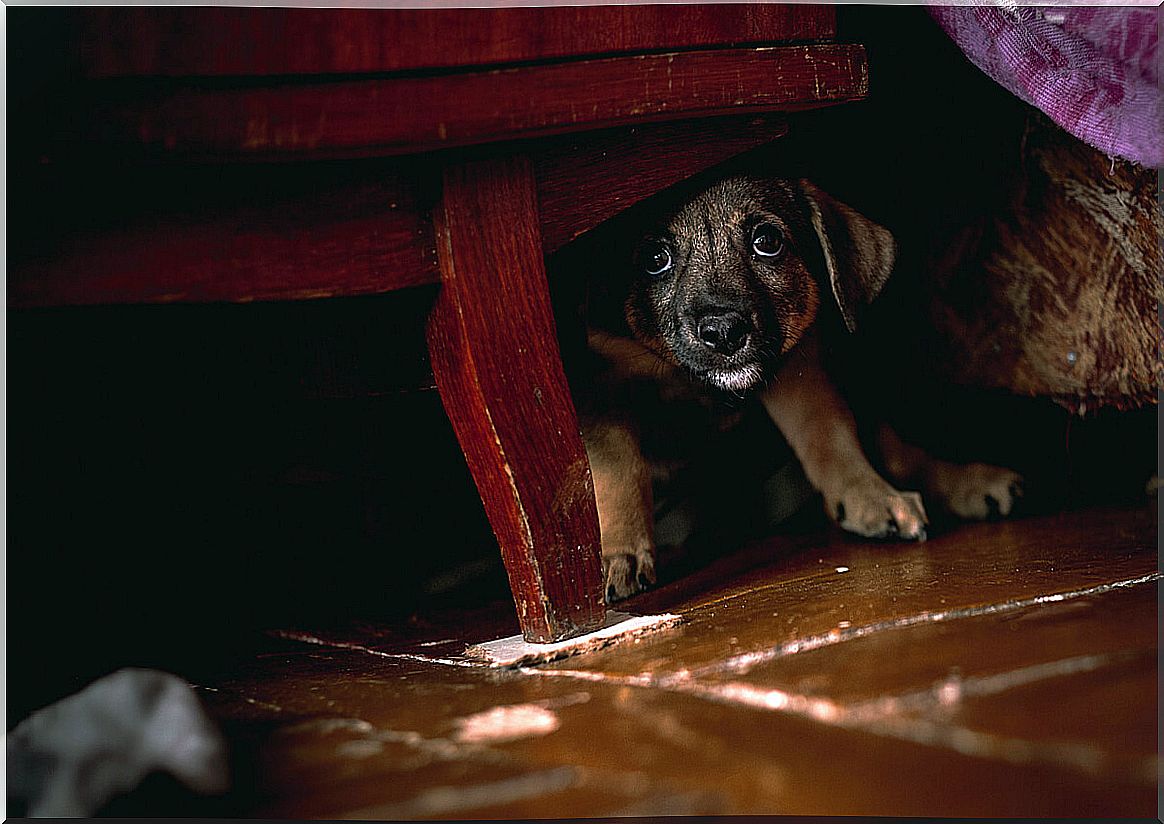
3. Loneliness
Some dogs fear being left alone, which sometimes leads to separation anxiety. Dogs with a more dependent personality or victims of abuse are more vulnerable to feeling this fear, since they do not tolerate the uncertainty of when their guardian will return well.
4. Cars
This fear takes two forms: the fear of nearby cars — because of the noise, size, and speed — and the fear of riding in a vehicle. The latter has to do with the internal sounds of the car and the sensation of movement. The dogs may also have associated it with dizziness or some traumatic event.
5. What are dogs afraid of? To the vet, of course
Surely you have ever witnessed the scene of a dog trying desperately not to enter the clinic. It is logical that the procedures these animals go through in a consultation – strangers doing things that sometimes hurt and do not happen every day – can cause fear in your pet.
6. Fear of strangers
Fear of strangers is strongly associated with socialization problems. If, in addition, it is a dog that has had bad experiences with humans, it may create a bond with its guardian and feel suspicious of other people. It is important to correct this problem on a social level and not just as an isolated fear.
7. Darkness
This fear is more common in puppies, since at night the vision changes and some objects become unrecognizable to them. Some noises that only occur at night – nocturnal animals, for example – are also often terrifying for a dog.
How to handle these nervous breakdowns?
The first thing to do is identify when the canine rides in a panic. In these crises, dogs often try to escape, stick to the ground, defecate, shake, bark, growl and even attack. At a central level, you can also observe that the animal dilates its pupils, turns its ears back and tucks its tail between its legs.
The most appropriate action in these cases is to remain as neutral as possible in the face of the stimulus: you should neither reward nor scold them. The dog must process this stimulus himself, not through your response to his behavior.
If the dog needs to move away, allow it and gradually approach it later. Going step by step is the key to most phobias in animals, as it allows them to adjust their own rhythm of habituation.
What are the most nervous dogs afraid of
A phobia can be something that seriously disrupts the life of a dog, just like human beings. What in one horse is a fear that is easily overcome, in another more nervous it can be a serious problem.
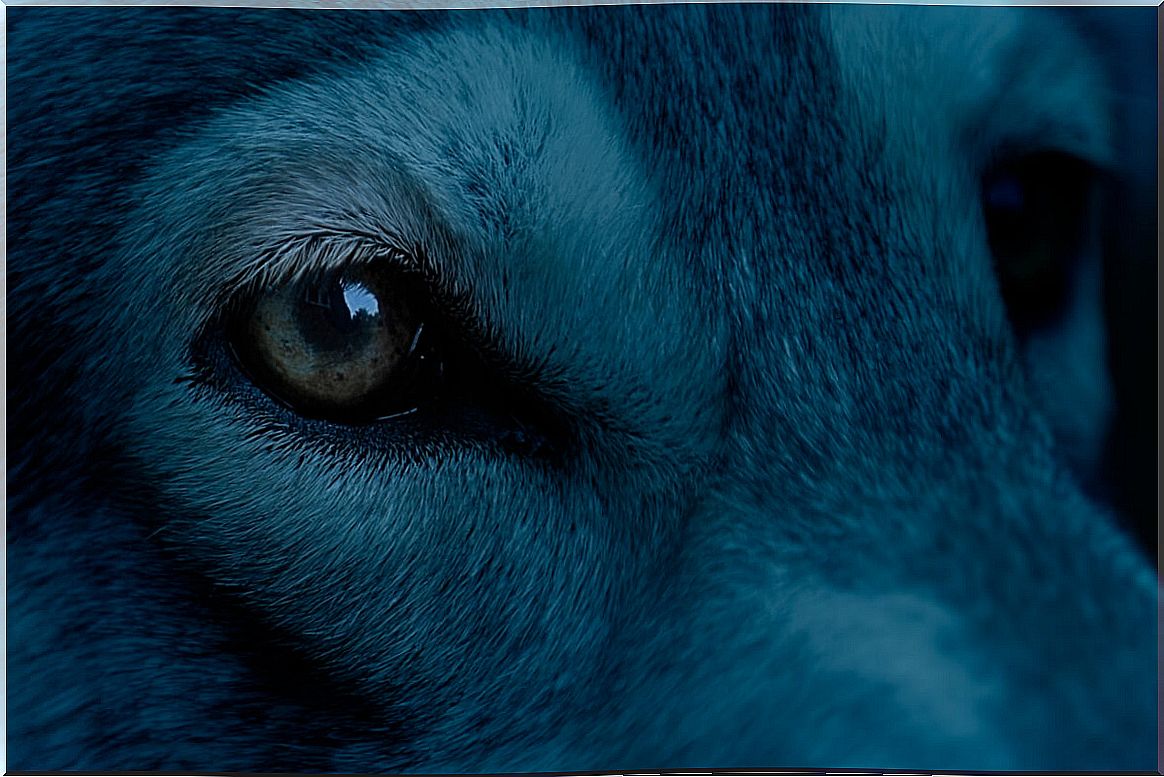
In conclusion, the main recommendation in these cases is that you do not let the problem escalate. If you notice that your dog’s happiness – and by extension, yours – is affected by his fears, go to a specialist.
